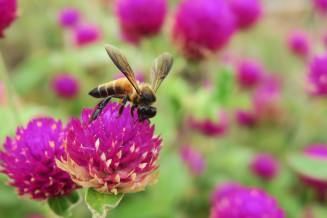
UNESCO and Cambodia are coming together to commemorate World Bee Day and promote sustainable beekeeping practices. Through initiatives like the CAPFISH-Capture program and the UNESCO x Guerlain Women for Bees program, they are working on training, capacity development, and awareness-raising activities to strengthen beekeeping practices and biodiversity conservation. Their focus is on women’s empowerment and fostering a sustainable beekeeping ecosystem. The partnership has already conducted a Rapid Assessment of the beekeeping ecosystem in the Tonle Sap Biosphere Reserve, which has provided valuable insights for the development of a National Plan on Sustainable Beekeeping and Native Honey Bee Conservation. Trainings have been held to build capacity and promote sustainable beekeeping practices, with a particular emphasis on native bee conservation and women’s empowerment. By collaborating closely with the Royal Government of Cambodia, UNESCO aims to support the development of sustainable beekeeping practices and provide viable income-generating opportunities.
UNESCO and Cambodia commemorate World Bee Day
UNESCO and the Royal Government of Cambodia have joined forces to commemorate World Bee Day and promote sustainable beekeeping practices and biodiversity conservation in the country. Through various initiatives, including the launch of the Rapid Assessment: Beekeeping Ecosystem and a partnership with Guerlain, UNESCO aims to support sustainable beekeeping, empower women, and foster native bee conservation. Additionally, training and capacity development programs, the development of a National Plan on Sustainable Beekeeping, high-level consultations with stakeholders, and technical support will be provided to local communities, creating viable income-generation livelihood opportunities.
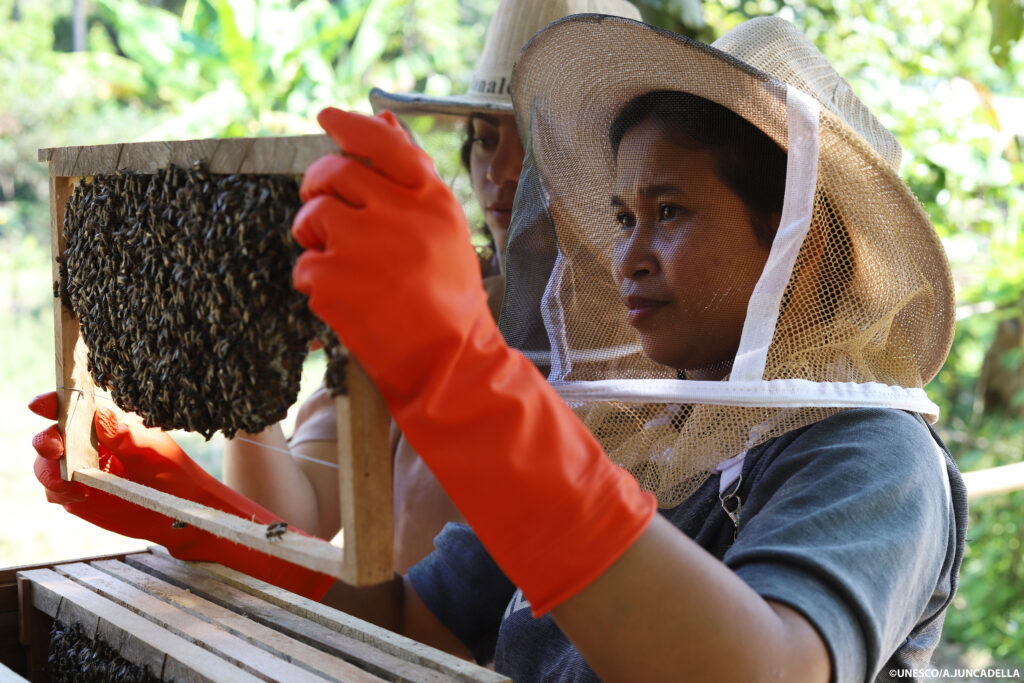
This image is property of articles.unesco.org.
Launch of Rapid Assessment: Beekeeping Ecosystem
As part of the collaboration between UNESCO and Guerlain, the Rapid Assessment: Beekeeping Ecosystem was launched in the Tonle Sap Biosphere Reserve in July 2021. This assessment is a first-of-its-kind study that aims to explore the development of sustainable beekeeping practices and identify opportunities for beekeeping in the biosphere reserve. By assessing the current state of the beekeeping ecosystem, UNESCO and Guerlain can develop strategies to promote sustainable practices and ensure the conservation of native bees.
Partnership with Guerlain for biodiversity conservation
UNESCO has partnered with Guerlain, a luxury perfume and cosmetics brand, to promote biodiversity conservation and sustainable beekeeping in Cambodia. This partnership focuses on women’s empowerment, recognizing the important role that women play in beekeeping and the conservation of native bees. Through the Women for Bees program, UNESCO and Guerlain aim to provide training and capacity development opportunities for women in beekeeping, empowering them to participate in sustainable livelihoods and contribute to biodiversity conservation.
Training and capacity development
UNESCO is actively involved in providing training and capacity development programs for beekeepers in Cambodia. These initiatives focus on various aspects of beekeeping, including beekeeping with native bees and apitourism in the Angkor Archeological Park. The trainings aim to enhance the skills and knowledge of beekeepers, promote sustainable beekeeping practices, and conserve native bees. In addition, UNESCO is also working towards empowering women in beekeeping by providing them with the necessary skills and resources to succeed in the field.
Development of National Plan on Sustainable Beekeeping
To ensure the long-term sustainability of beekeeping in Cambodia, UNESCO is facilitating the development of a National Plan on Sustainable Beekeeping. This plan will be developed through a consultation process with honey value-chain stakeholders and a policy dialogue with relevant ministries. The National Plan will serve as a roadmap for promoting sustainable beekeeping practices and native honey bee conservation in the country. It will analyze the current status of bee conservation and honey trade, identify gaps and good practices, and highlight opportunities for further development.
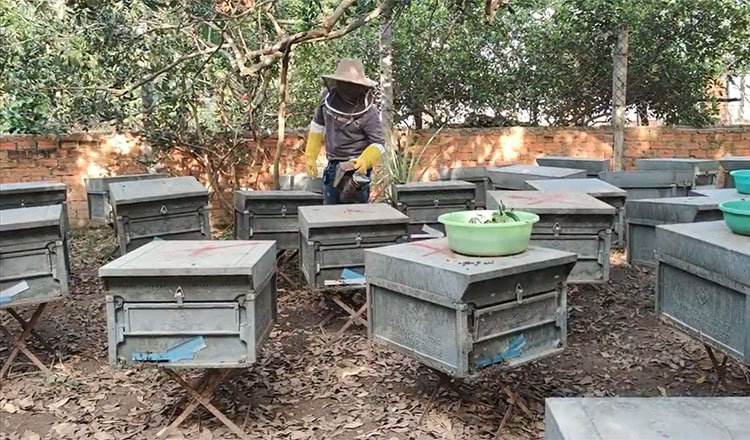
This image is property of www.khmertimeskh.com.
High-level consultation with stakeholders
In order to finalize the roadmap for the National Plan on Sustainable Beekeeping, UNESCO is conducting a high-level consultation with stakeholders. This consultation will involve the Ministry of Environment, the Asian Cultural Council, line ministries, and other relevant stakeholders. Through this collaborative effort, UNESCO aims to gather input and expertise from various stakeholders to ensure the effective implementation of the National Plan and the promotion of sustainable beekeeping practices in Cambodia.
Trainings on beekeeping with native bees
As part of the capacity development initiatives, UNESCO has conducted training sessions on beekeeping with native bees in the Angkor Archeological Park. These training sessions aim to equip beekeepers with the necessary skills and knowledge to engage in sustainable beekeeping practices. Additionally, UNESCO has also conducted training programs for tour guides on apitourism, promoting the conservation of native bees and raising awareness about the importance of beekeeping for biodiversity conservation.
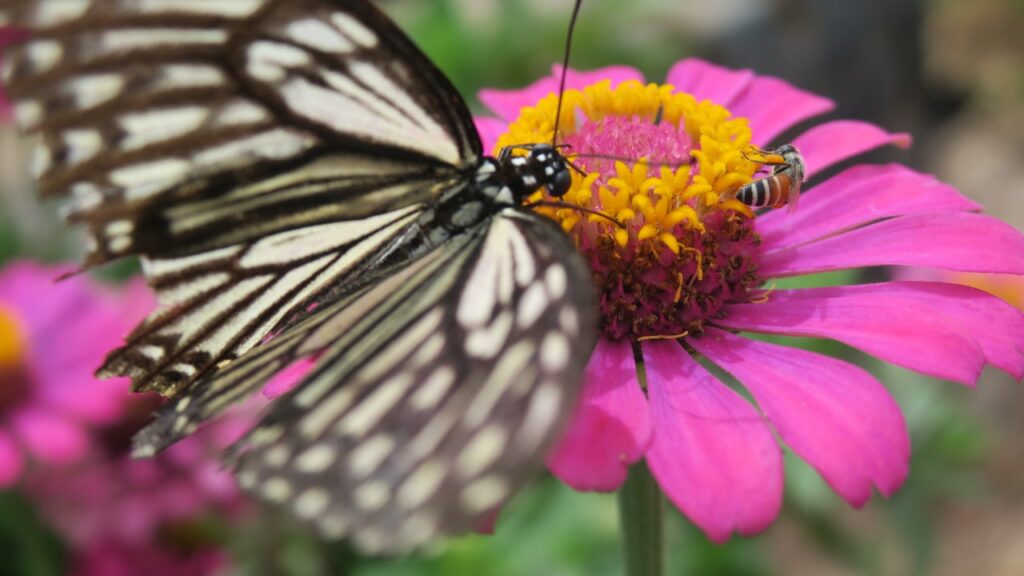
This image is property of www.unesco.org.
Promoting sustainable beekeeping practices
One of UNESCO’s main objectives is to promote sustainable beekeeping practices in Cambodia. This involves building the capacity of beekeepers to engage in environmentally friendly practices that conserve native bees and biodiversity. By providing technical support, sharing best practices, and offering additional training opportunities, UNESCO aims to empower beekeepers to adopt sustainable practices that not only benefit their livelihoods but also contribute to the conservation of native bees and the protection of the ecosystem.
Technical support and additional training
UNESCO is collaborating closely with the Ministry of Environment to provide technical support to beekeepers in Cambodia. This support includes offering guidance on best practices, enhancing beekeeping skills, and providing additional training opportunities. By ensuring that beekeepers have access to the necessary knowledge and resources, UNESCO aims to strengthen their capacity to engage in sustainable beekeeping practices and contribute to the conservation of native bees and biodiversity.
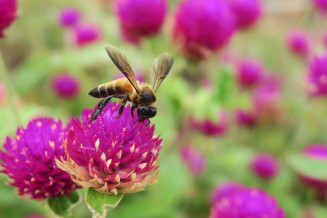
This image is property of www.unesco.org.
Viable income-generation livelihood opportunity
Beekeeping offers a viable income-generation livelihood opportunity for local communities in Cambodia. By promoting sustainable beekeeping practices and providing training and capacity development, UNESCO aims to support the establishment of beekeeping enterprises that can generate income for communities. This alternative income source not only provides economic opportunities but also contributes to the sustainable livelihoods of local communities. Through these initiatives, UNESCO is actively working to empower communities and promote sustainable beekeeping practices in Cambodia.
In conclusion, the partnership between UNESCO and Cambodia marks a promising step towards promoting sustainable beekeeping practices and biodiversity conservation. Through the launch of the Rapid Assessment: Beekeeping Ecosystem, capacity development programs, the development of a National Plan on Sustainable Beekeeping, and collaboration with Guerlain, UNESCO aims to empower beekeepers, conserve native bees, and create viable income-generation livelihood opportunities for local communities. By working together, UNESCO and Cambodia can contribute to the preservation of biodiversity and the promotion of sustainable practices in the beekeeping sector.